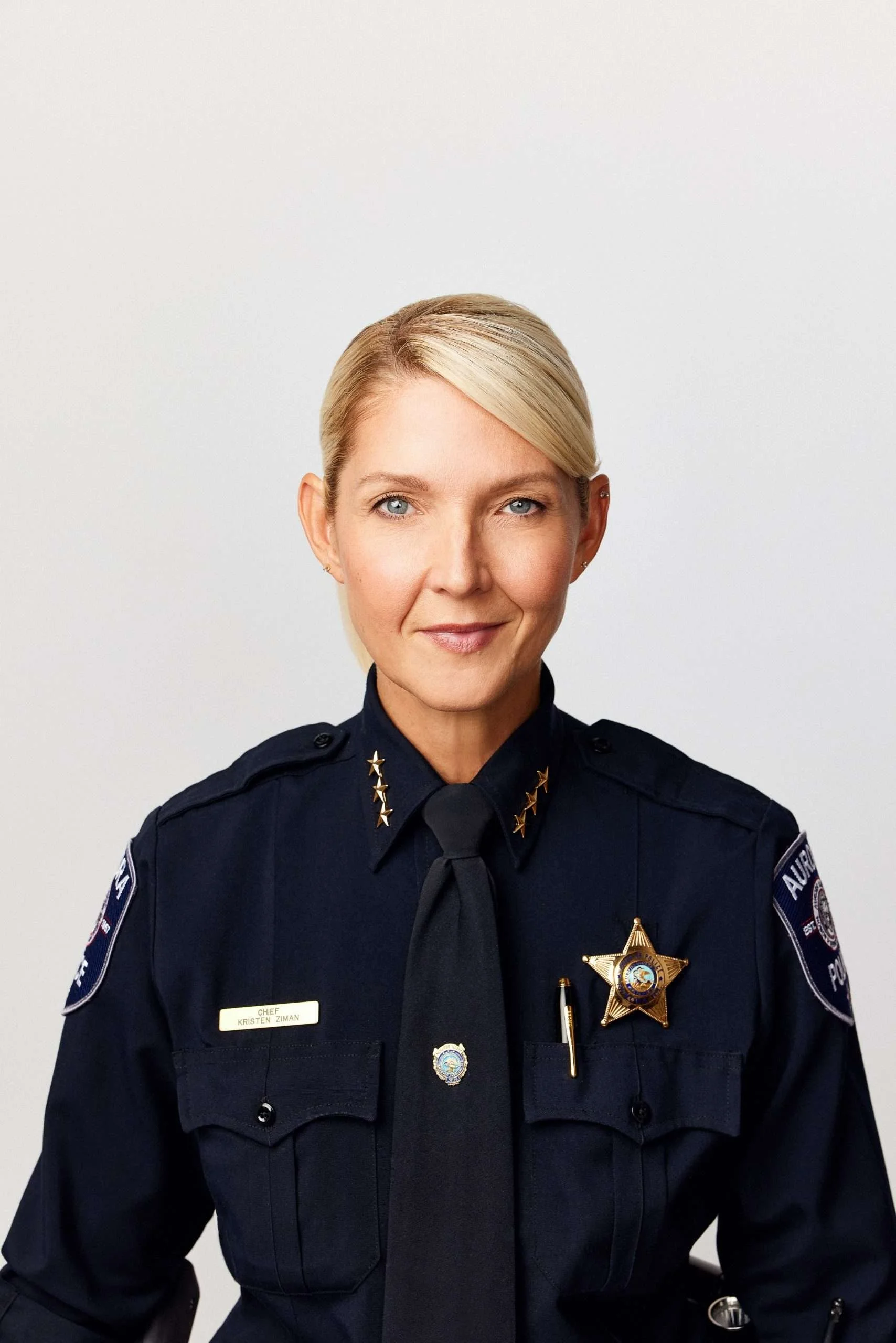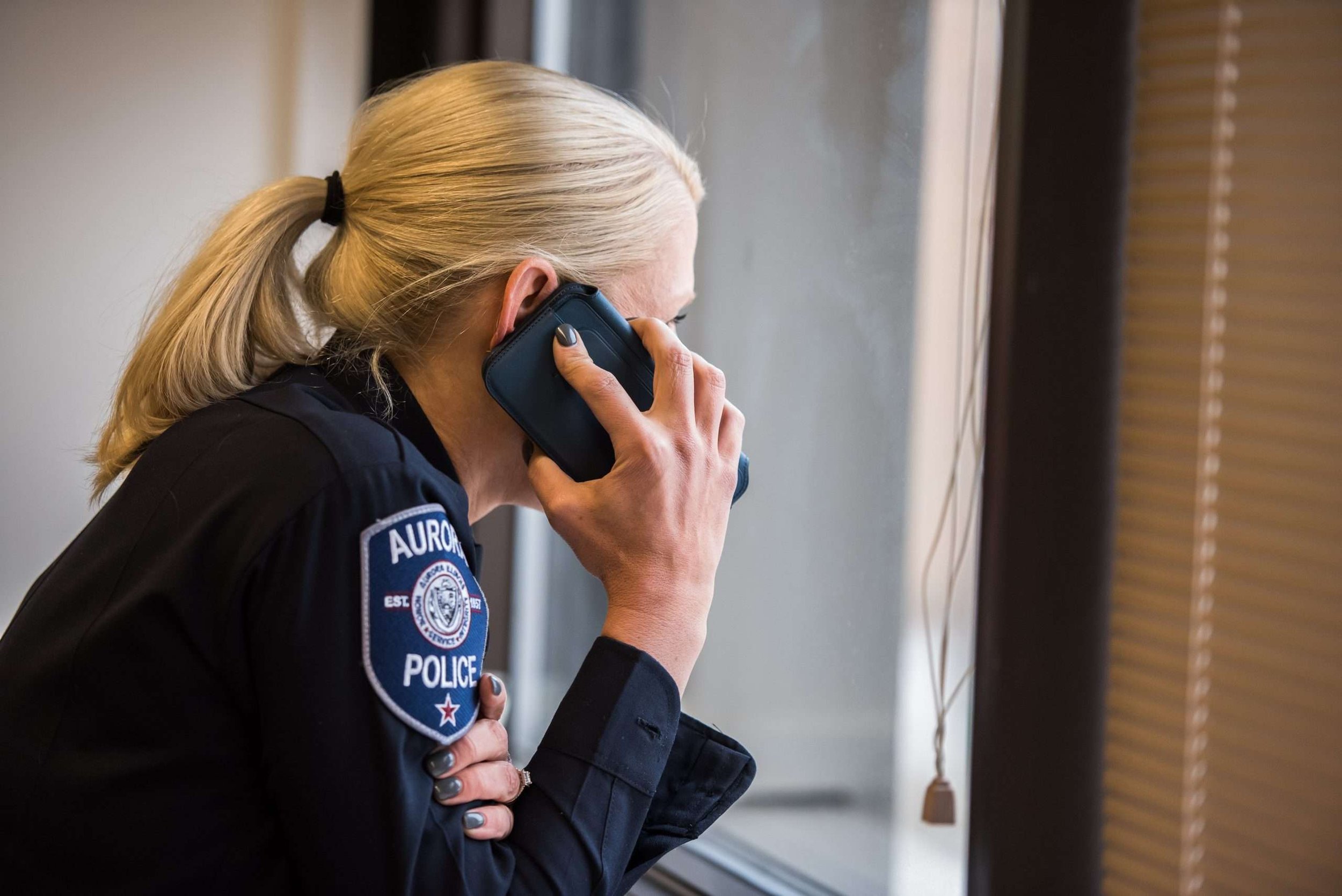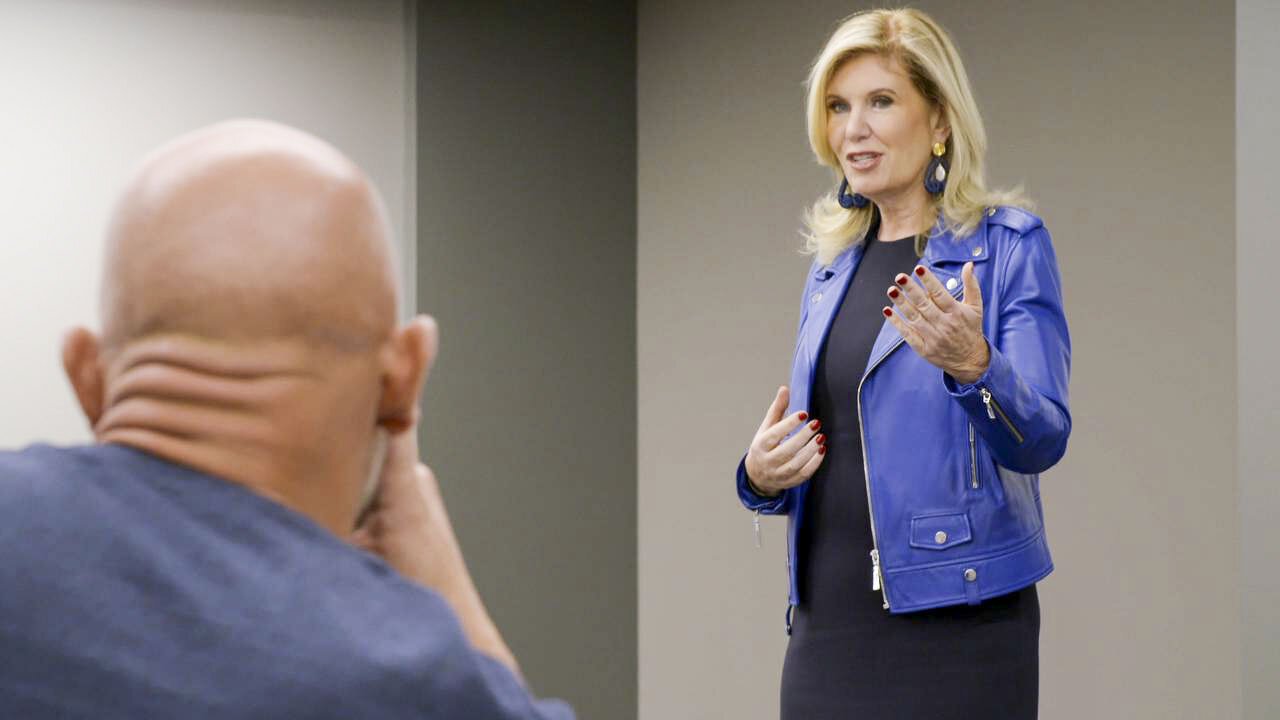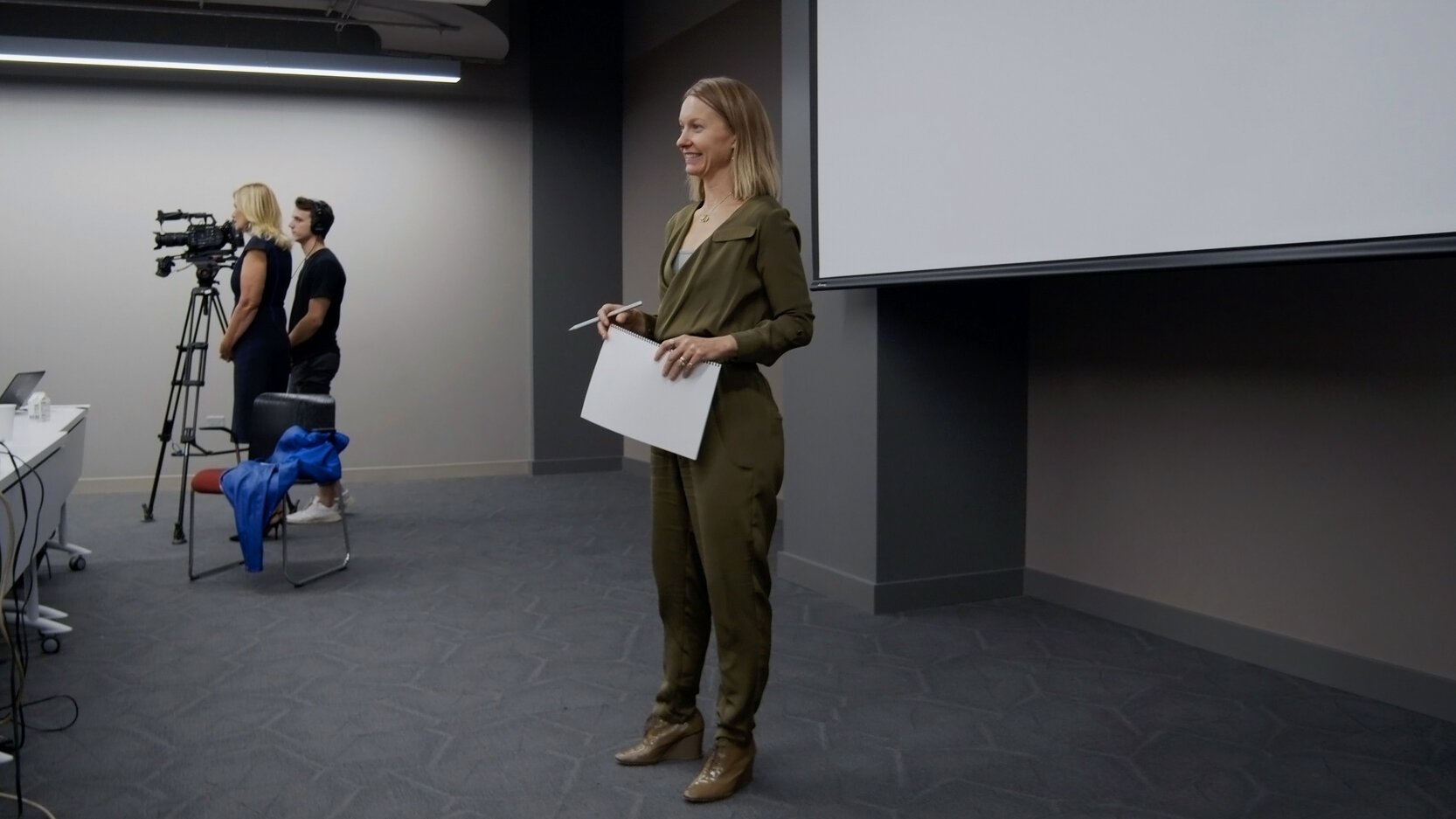“The River Strategies Crisis Management training was incredibly powerful. We chose to expand on our crisis response abilities and chose Tracy and her team for the task. The practical experience of delivering messaging in front of a camera with feedback from their trainer was invaluable. We now feel better prepared should an event occur in our community and we have to put on our public speaking hats. I believe every community in today’s world should be prepared for crisis situations and investing in this type of training is a vital step in the process.”
Our team of award-winning journalists, crisis communication experts, and a former chief of police have developed a full-day, in-person, intensive training that equips leaders with competency in crisis. The Crisis Prevention and Communication Training arms leadership and their team with crucial prevention strategies, as well as communication strategies that will dispel fear, create trust, and regain control quickly if you find yourself at the podium, with all eyes on you.
““Our team of former award-winning journalists spent decades asking the tough questions. Now we teach you how to answer those tough questions effectively. When doing TV interviews, you often have just 15-20 seconds to make your point. We teach our clients how to control the interview and give them the performance skills to deliver their message in a concise, “soundbite friendly” manner even in the most challenging media situations.””
“During crisis. community leaders have the power to mitigate damage and reestablish stability, if they have prepared and are armed with communications skills to react quickly. But, poor communication or a lack of strategy can create fear - which is like pouring fuel on a raging fire. ”
Our team of trainers have been on both sides of crisis. We have been in the newsroom managing the moment-to-moment reporting and we have been running communications as Chief of Police.
Meet our trainers:
Kristen Ziman
Speaker | Author | Leader | Change Agent
Kristen is the former Police Chief of the Aurora IL Police Department (Ret.). In Kristen’s 30-year career in law enforcement, she blazed trails: she became the first woman Lieutenant in 2008, first woman Commander in 2010, and eventually the first woman Chief in her department’s history in January of 2016. Kristen was also the Chief on watch during a mass shooting in her hometown Aurora, IL.
Since retiring from the department, Kristen has now stepped into her new career as a professional speaker and consultant for organizations and police departments focused on the areas of leadership, women empowerment, positive psychology, and mass shooting prevention. She has worked with school districts, communities, and corporations, helping to institute practices and processes that help prevent the unthinkable.
Kristen is also the author of Reimagining Blue: Thoughts on Life, Leadership, and a New Way Forward in Policing, a passionate and personal memoir of a misunderstood profession through the vantage point of a female police chief.
Anne Kavanagh
Award-winning Journalist | Crisis Expert
For more than a decade, Anne Kavanagh has been the “go to” source for media training, interview preparation, and crisis media strategies for local governments, elected officials, lawyers, business leaders, school districts, colleges and universities, major non-profit organizations and law enforcement. She has media trained hundreds of newsmakers. Anne has worked on some of the highest profile and most controversial crisis situations in Chicago and the nation. The communications strategies she has developed for her clients have successfully diffused many crisis situations by giving them the media skills to communicate with the public effectively under the most difficult circumstances.
Before launching her own communications firm in 2010, Anne was a nine-time Emmy-award winning Chicago television reporter for more than two decades covering the courts, news, politics, education, business and sports. During her long career as a reporter, Anne covered many major breaking news stories around the world.
Anne spent years asking the tough questions as a reporter. She knows what the media wants and needs especially in crisis situations where the stakes are especially high.
Anne worked as a reporter at FOX News Chicago for more than two decades. She has also written award winning magazine stories and has produced several documentary films including one that was screened at the White House in 1998. Her work has been honored by the Associated Press, United Press International, the Chicago Headline Club and the National Association of Black Journalists.
Lilia Chacon
Award-winning Journalist | Crisis Expert
With more than four decades of experience on the front lines of journalism as an Emmy, Edward R. Murrow and Peabody award winning reporter and communications director for elected officials. Lilia has the media expertise to provide clients with the highest level of communication services.
Lilia spent most of her career working as a television reporter at FOX News Chicago. Lilia is fluent in Spanish and has covered many news stories involving the Latino community throughout the United States.
After leaving TV news, Lilia served in the administrations of both Chicago Mayors Richard M. Daley and Rahm Emanuel, as communications director for Chicago City Treasurer Stephanie Neely, and City Business Commissioner Rosa Escareño. She provided a wide array of communications services including outreach programs to Spanish-speaking citizens in print, radio and TV.
Andrea Darlas
Award-winning Journalist | Messaging Expert
Andrea Darlas is an Emmy-nominated, award-winning radio and television news anchor/reporter and talk show host based. Having worked in the Chicago media for nearly three decades, Darlas was a news anchor and reporter at WGN Radio for nearly 23 years, a news reporter and weekend break/features reporter for WGN-TV for 10 years. In 2019, she was inducted in the prestigious WGN Radio Walk of Fame.
Currently, Darlas is a regular contributor to WLS-AM, WGN-AM, WCIU-TV.
Tracy Slutzkin
Award-winning Journalist | Crisis Strategist
Tracy Slutzkin has a depth of knowledge of news operations from a more than 20 year career in broadcasting at ABC News, Fox Chicago, Cumulus Media and Westwood One. Tracy has reported and produced investigative news, breaking news, feature stories and newstalk programming at some of the most influential media outlets in the country. She developed special segments with high-profile newsmakers including four U.S. Presidents and served as Program Director at a major market news talk radio station for several years.
Tracy is the co-founder of communication and crisis firm, River Strategies, and President of Lincoln Forum, an influential public affairs event series in Chicago. Tracy has earned several coveted industry awards for programming and news coverage, including being named one of the “Most Influential Women in Radio”.
Hayley Burns
Journalist | Crisis Communication Strategist
Hayley Burns is a communication, public affairs, and crisis management expert with experience in some of the toughest political, legal, and business environments including cyber-security, finance, education, and international business.
Hayley is cofounder of communications and crisis management firm, River Strategies, and cofounder of Lincoln Forum, the leading public affairs event platform in Illinois, hosting some of the most powerful leaders in government, business, and the media.
Hayley covered breaking news, business and politics at NBC Chicago, Fox News Chicago and the CNN Midwest Bureau.
Hayley has created and led communication and crisis management initiatives for Fiat Chrysler Automobiles, Quicken Loans, Mopar, Kraft, Principal Financial Group, Chicago Public Schools, and Ronald McDonald House Charities.
““Forming an alliance with the media to relay a controlled message is crucial and a nuanced process. When people don’t have information, they’re scared. You can leverage the media to create trust and dispel fear, but if the media isn’t managed strategically, the message can be distorted and rather than dismantling fear, chaos can ensue.” ”
Why it works every single time.
Our Media and Crisis Communication training curriculum is about simulating reality. This is not a quick overview or flimsy webinar to be watched over lunch. Our team has seen too many times how, without substantial preparedness and training. leadership under the pressure of a crisis can miss opportunities to regain stability and control. Instead a crisis can turn into disaster. The skills to navigate crisis, leverage the media with competency, and mitigate further damage are tactics that need to be learned and practiced in a setting moderated by crisis professionals. By the end of the training day, individuals feel as though they have successfully managed their first crisis, and executed a strategic media and communication plan to completion.
Core components of the media and crisis communication training
Training is done in-person
We have learned that webinars and digital seminars simply aren’t as effective as in-person trainings in which our trainers can engage directly with leadership and/or their staff. When we are on-site, much more is absorbed and accomplished, and all other tasks are set aside to ensure the full value of the intensive training is gained.
Customized trainings for your leadership and/or staff
We understand every community, and every leader has a unique set of concerns. Our trainers first seek to understand where you are. We hold at least two discovery sessions via Zoom to ensure we understand the landscape, goals, and issues facing your community, team, or leadership. We have a standard curriculum, but it is flexible and customized to be highly relevant to your current needs.
reality is simulated
We simulate reality. Our trainers work with you to identify a crisis situation and we work together through the entire process of managing the crisis and building a communication plan.
The former Chief of Police on our team, who led her community through several crisis, including a mass shooting, will simulate the strategic internal process that is triggered after a crisis occurs. She will recreate the steps that need to be taken, and the nuances of managing the internal processes of crisis management.
Our award-winning journalists and reporters, who have managed the reporting of many major crisis, will simulate the media component of navigating crisis. We bring on-site a full camera crew, and simulate media interviews and press conferences. It is important that we create a similar environment to an actual crisis situation, so if one occurs, you have answered the tough questions, been under the lights and at the podium, and feel armed with the skills and plan to react and lead with competency.
messaging training and development
Skills to quickly develop messaging that dispels fear, creates trust, and promotes stability are imperative to mitigating damage in crisis. Our team will help you understand the framework for messaging development at the various stages of crisis.
Our team from various background will help develop internal messaging and as well as external messaging and media strategy
opportunity for practice and feedback
Each individual in our training will practice delivering developed messaging to a reporter with camera crew as well as at a podium. Interviews and addresses are recorded and played back, with constructive feedback and guidance. Individuals have at least two to three rounds of practice and playback to hone their skills and develop confidence in front of the camera.
supportive environment and team building
While our training is intensive, it is also supportive. Our team educates and provides feedback and guidance with a commitment to a respectful and collaborative communication and training style. We mindfully simulate a crisis situation, purposefully creating a sense of pressure, yet sustaining a supportive environment throughout the training.
If the training is individual, our team ensures the leader being trained feels empowered and comfortable enacting their role in a simulated environment. Feedback is clear and productive, and the training has a sense of collaboration.
Groups thrive in our training as they feel a sense of community as they tackle a simulated crisis situation as a team. They have the opportunity to voice concerns, work through tough questions and issues, and build strategic plans in a setting moderated by our experienced team. Groups we train gain a renewed sense of community and a general lift in the spirit of their team, as a result of feeling competent and prepared to work together successfully.
We purposefully schedule a working lunch, so our trainers can spend time answering questions and engaging during a “break” in the intensive portions of the training.
ongoing support and materials
Our team provides our Media and Crisis Communications Training Manual, which is an outline of the training and lists in easy-to-reference formatting the fundamentals of crisis and media management. This manual is provided digitally and be used ongoingly as a quick refresher
After the training, each individual trained is provided links to their simulated media interviews and press conferences - both the benchmark interviews and the final version. This allows individuals to see their incredible progress and refer to the videos when practicing or preparing.
If additional ongoing support is needed our team, we can provide options for more hand-on crisis and communications support.
““When it comes to the intersection of lawyers, their clients, and the media, Anne Kavanagh and her team “get” us. Anne understands the variety of simultaneous purposes, legal constraints, and ethical obligations lawyers need to bear in mind when dealing with the media as well as the best way to communicate our messages so that a broader audience can understand and appreciate them. She conducted a media training for a group of our Millennial lawyers and took them from earnest, well-meaning, and sometimes long-winded or rambling to clear, concise, and focused speakers who could deliver their messages with much greater impact.”
”
We are preparing communities and leadership for competency
and grace in crisis.
“Andrea Darlas is a consummate professional who understands both the role of the media and of an organization in sharing information and addressing crises or critical situations. Andrea provided media relations training, including how to prepare for and manage a press conference for school district leaders. She shared the importance of staying on message, remaining poised and confident with microphones and cameras pointed at you, and being prepared for the peppering of questions from the media. Conducting mock press conferences, the leaders honed their message and presentation skills, learned how to stay on mesage, and walked away with the confidence to provide accurate, timely and important information in a crisis situation. Andrea’s expertise and feedback were invaluable to the process.”
”











